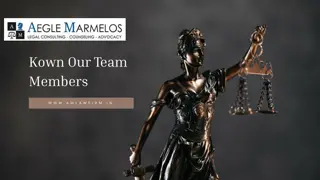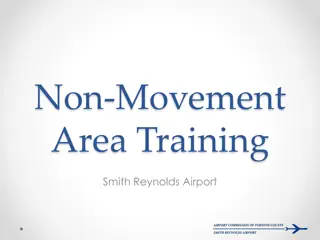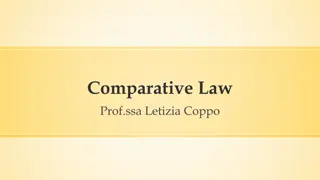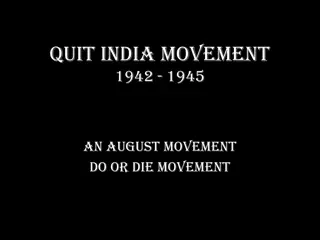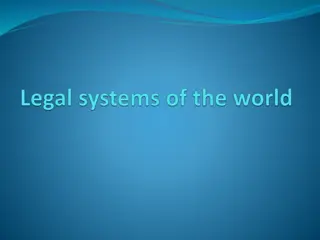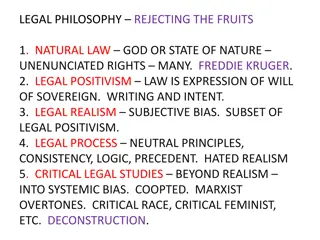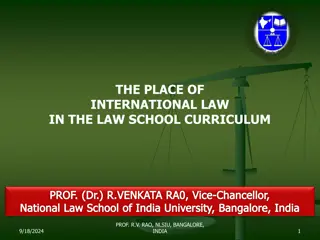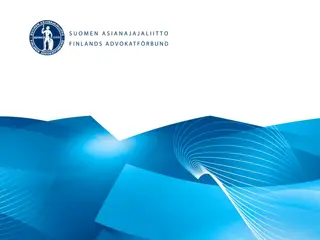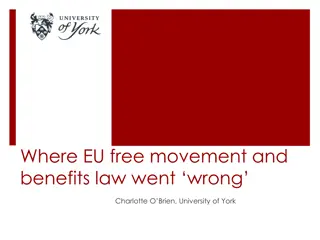Advancing Open Access to Legal Information: The Free Access to Law Movement
Explore the global initiative of the Free Access to Law Movement, a coalition of legal information institutes promoting free access to legal resources online. Learn about the characteristics of LIIs, the Montreal Declaration emphasizing public legal information accessibility, and the impact of the movement on enhancing justice and the rule of law.
Download Presentation

Please find below an Image/Link to download the presentation.
The content on the website is provided AS IS for your information and personal use only. It may not be sold, licensed, or shared on other websites without obtaining consent from the author.If you encounter any issues during the download, it is possible that the publisher has removed the file from their server.
You are allowed to download the files provided on this website for personal or commercial use, subject to the condition that they are used lawfully. All files are the property of their respective owners.
The content on the website is provided AS IS for your information and personal use only. It may not be sold, licensed, or shared on other websites without obtaining consent from the author.
E N D
Presentation Transcript
The Free Access to Law Movement and Cylaw.org as an example of the Lii model Laris Vrahimis 9 June 2017 Lawyer, Member of the Board, Cylaw/Cylii Secretary, Free Access to Law Movement 1
Introduction The Free Access to Law Movement is an international voluntary association with over 60 members organisations from around the world. Members includes both: online providers on a free access legal information from more than one source, and organizations that carry out research that facilitate such access We call the members of FALM, the Legal Information Institutes 2
The LIIs LIIs are providers to free access to law who have two main characteristics: They publish legal information from more than one source, not just their own, for free access through the Internet, they collaborate with each other both technically and politically through membership of the 'Free Access to Law Movement'. The first LIIs were LII (Cornel Law school) (1992), AustLII (University of Technology, Sydney (UTS) and University of New South Wales (UNSW) (1995), and and Lexum/CanLII (1993-2000) all from common law jurisdictions 3
Characteristics of the three jurisdictions: Case law is a source of law Published either by private providers or state providers at sometimes considerable cost The situation continued after the information went online The development of the internet and the production of judgments in digital form made a different model possible 4
The Free Access to Law Movement In 2002, during the 4th Law via the Internet Conference in Montreal, 7 LII s LII Cornel, AustLII, CanLII, BAILII, PacLII, SAFLII and HKLII made the Declaration of Free Access to Law (or Montreal Declaration) This was the start of the Free Access to Law Movement 5
The Montreal Declaration Main declaration: Public legal Information is part of the common heritage of humanity. Maximising access to this information promotes justice and the rule of law. Public legal information should be accessible to all on a non-profit basis and free of charge; Organisations such as legal information institutes have the right to publish public legal information and the government bodies that create or control that information should provide access to it so that it can be published by other parties. Legal information institute criteria: Publish via the internet public legal information originating from more than one public body; Provide free and anonymous public access to that information; Do not impede others from obtaining public legal information from its sources and publishing it; and 6
Common goals and commitments To promote and support free access to public legal information throughout the world, principally via the Internet; To recognise the primary role of local initiatives in free access publishing of their own national legal information; To cooperate in order to achieve these goals and, in particular, to assist organisations in developing countries to achieve these goals, recognising the reciprocal advantages that all obtain from access to each other's law; To help each other and to support, within their means, other organisations that share these goals with respect to: Promotion, to governments and other organisations, of public policy conducive to the accessibility of public legal information; Technical assistance, advice and training; Development of open technical standards; Academic exchange of research results. To meet at least annually, and to invite other organisations who are legal information institutes to subscribe to this declaration and join those meetings, according to procedures to be established by the parties to this Declaration; 7
Membership Criteria Adopted by FALM in November 2015 The two main criteria involved in significant activities facilitating free access to one or more types of public legal information (PLI) usually fall within one or both of two main categories: ( Members who are free access (re )publishers of PLI; Members who facilitate other organisations to (re )publish PLI for free access. FALM however may decide to recognise as Members organisations that make other types of contributions. 8
Other member criteria: Members should adhere to the objectives of the Declaration on Free Access to Law (Montreal Declaration) Members should not impede others from obtaining PLI from it sources (not necessarily from the members databases themselves) PLI published by members anonymously and free of charge, and should also be substantial and of good quality, published through the internet and should involve either PLI from more than one public body (not only its own PLI) or extensive and sustained commentary by multiple authors Though most members are non-profit organisations based on NGO s or Universities, government organizations or profit- making bodies may also become FALM members provided they meet the other membership criteria should be accessible, 9
Only organisations and not individuals may become members There may be more than one member in one country FALM membership is based on existing and not proposed activities Advertising material is permissible but should not be out of proportion to the quantity and quality of PLI provided Members who facilitate other organisations should conduct research and development activities in the field of legal information systems, carried out to a significant extend for the purpose of assisting other organizations to publish PLI for free access. 10
Types of member organisations and funding models Most members of FALM are LIIs based on academic institutions. Examples are LII (Cornel), AustLII, HKLII NGO s such as BAILII, and NGO s that are owned by bar associations, CanLII and Cylaw Governmental or semi governmental organisation, such as Publications Office of the Netherlands or Jerseylaw LII owned by bar associations have their funding secured by a small annual contribution from each lawyer. Government run services also have their funding secured from their state sponsors. Other LIIs depend on multiple contributors, contributions from the public, academic funding or contributions from international aid and development agencies LIIs however that do not have a secure single source of funding are always in risk of loosing their funding and having to cease their activities 11
Law via the Internet conference One of the commitments of the FALM is to hold an annual conference. The conference called the Law via the Internet is held almost every year Program includes the annual meeting of FALM. Members of FALM communicate between the conference through the FALM mailing list 16 conferences up to now since 1997, 6 Australasia, 4 Europe, 3 North America, 2 Africa, 1 Asia. Next year at Rutgers University School of Law, Newark, New Jersey Many of the conference papers are published online and many are included in JOAL, the Journal of Open Access to Law which is affiliated with FALM 12
2008 - Institute of Legal Information Theory and Techniques (ITTIG), Florence, Italy 1997 - AustLII, Sydney, Australia 1999 - AustLII, Sydney, Australia 2009 - SAFLII, Durban, South Africa 2001 - AustLII, Sydney, Australia 2011 - HKLII, Hong Kong, China 2002 - LexUM, Montreal, Canada 2012 - LII (Cornell), Ithica, United States 2003 - AustLII, Sydney, Australia 2004 - ADBS (Association of Specialized Researchers and Librarians), the ADIJ (Association for the Development of Legal Information), and Juriconnexion (Association of Legal Information Users), Paris, France 2013 - Jerseylaw, Jersey, Channel Islands 2014 - SAFLII Kenya Law and AfricanLII, Cape Town, South Africa 2015 - Austria, Sydney, Australia 2016 - Cylaw, Limassol, Cyprus 2005 - PacLII and AustLII, Port Vila, Vanuatu 2017 - The Rutgers University School of Law - Newark, United States 2007 - LexUM, Montreal, Canada 13
FALM Secretariat Laris Vrahimis, Member of the Board, Cylaw (secretary) Philip Chung, Executive Director, AustLII John Joergensen, Senior Associate Dean for Information Services, Rutgers University Law School Marc van Opijnen, Adviser Legal Informatics, Publications Office of the Netherlands Ginevra Peruginelli, Researcher, Institute of Theory and Techniques of Legal information, Florence (ITTIG) Xavier Beauchamp-Tremblay, President, CanLII Marja Hinefelaar, Director of Research and Programs, Southern African Institute for Policy and Research (SAIPAR) Anita Jowitt, Director, PacLII 14
Why is FALM important It includes some important organisations internationally involved in the provision of free access to law carrying serious research and developing innovative tools for the online dissemination of legal information It allows the organisations to share experiences, knowledge, research as well as tools developed by one of the organizations so that more organizations can benefit from them (e.g. sino search engine, or AustLII communities collaborative tools for legal guides) Members of FALM have assisted in the creation of LIIs in other jurisdictions (BAILII, HKLII, NZLII, PacLII initially set up by AustLII, Droit Francophone, JuriBurkina and JuriNiger setup by LexUM, ZamLII setup by LII (Cornel)) Helps develop international standards 15
Citations and standards Traditionally cases are cited based on the published report (e.g. [2013] 1 WLR 123) There have been attempts by LIIs to introduce a universal standard of medium neutral citation of the format [<year of publication>] <court designator> <sequential number> (eg. [2017] HCA 15) AustLII, BAILII, PacLII, SAFLII, and NZLII. In Australia, England and New Zealand these citation method has been adopted by the courts and has become the official citation of the judgment. Other common law countries such as Canada have introduced similar official citation systems. This citation systems can be adopted in a format compatible with ECLI which would make the two citation systems compatible or interchangeable. 16
More information Falm website: www.falm.info Greenleaf G., The Global development of free access to legal information , in European Journal of Law and Technology, Vol. 1, Issue 1, 2010: ejlt.org/article/view/17/39#_edn13 Greenleaf G., Mowbray A., Chung P., The Meaning of 'Free Access to Legal Information': A Twenty Year Evolution , in Journal of Open Access to Law, Vol.1, Issue 1, 2013: ojs.law.cornell.edu/index.php/joal/article/view 17
CYLAW Set up in 2002 as a proof of concept using Andrew Mowbray s from AustLII Sino search engine 18
Initially it only published cases from February 2000 that the court made available to Cypriot lawyers on a monthly basis. Within weeks of the site being set up, the Supreme Court agreed to release to Cylaw all judgments available at the time in electronic format dating back to 1996. In 2004 Cylaw became a member of FALM and thus received considerable support mostly in convincing authorities and lawyers of the validity of the project In May 2010 the full set of Cyprus Law Report dataing back to 1883 was added on Cylaw in pdf/a format at the modest cost of 12.000 through a joint project with the University of Cyprus funded by the Research Promotion Foundation, which is a Cyprus research funding agency. In 2002 the Cyprus Bar Association agreed to take over Cylaw and fund its activities 19
The Cylaw databases All authoritative Cypriot judgments since 1883 All numbered legislation (pdf/a) Consolidated versions of all legislation currently in force All secondary legislation since 1931 (pdf/a) All rules of procedure for all courts in both consolidated and numbered form All judgments issued by a number of tribunals Selection of first instance judgments from 2005 from about 20 courts (selection made by the judges themselves) 20
All European legislation (in the process) and case law in Greek (currently case law mined from EUR-Lex but soon legislation and case law will be sourced directly from CELLAR, the central content and metadata repository of the Publications Office of the European Union) Judgments of the Areios Pagos in Greece We are also in the process of publishing all articles published in two important Cypriot legal journals, Nomiko Vima and the Cyprus Law Review We are starting a pilot project publishing an encyclopedia of Cyprus Law prepared by lawyer on a collaborative basis using tools developed by AustLII In all Cylaw publishes 110.000 documents from Cypriot primary legal material from 30 separate databases or sources and 60.000 non-Cypriot documents mined from other online sources 21
Technical tools Automatic citation hyperlinkining citations in documents are automatically recognised and automatic hyperlinks are added to the text of the case Hyperlinks are also added automatically to judgments published in BAILII Citator (future cases that refer to a particular case) Greek stemmer Boolean, proximity and parametized searches 22
ECLI Project Cylaw 2.0 In line with Cylaw s LII philosophy: Authorities who produce legal primary sources should make available this sources electronically (through a database available through an API) along with the essential metadata (unique identification number of judgent, short title, date of publication, issuing court). Any other metadata prepared by the authority should also be available in the same format. Integration of Cylaw as the free access provider with the authority that produces the primary legal material so that the information is automatically published on Cylaw once it issued 23


